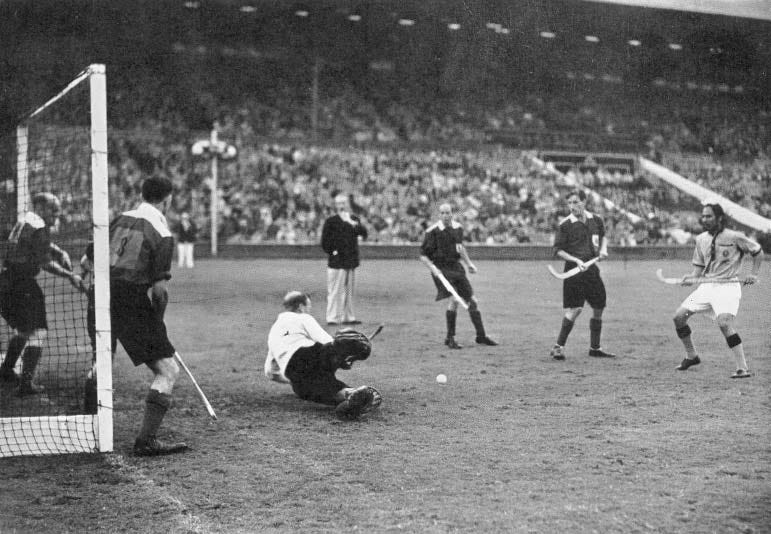India’s Olympic Muddle
A nation of a billion-plus people and the quest for Olympic fame have been at disproportionate odds ever since India began to send a contingent to the Games. Long story short…
August 11 marks a significant anniversary in Indian sporting history, and not one that many may remember. It is a not a day for commemorating victory, at least not of the kind where athletes returned bearing hardware memorabilia. That being said, on this day in 1984, half a hemisphere away from their sleepy hometowns, four Indian women sprinted into the nation’s modest record books.
The 1984 Los Angeles Olympics were held at the peak of the Cold War. The games were boycotted by 19 nations including the erstwhile USSR and the Eastern Bloc, which felt like a consolation considering that 66 nations including the United States had boycotted the previous summer Olympics in Moscow in 1980. India participated in both games, but even in this fractious milieu, the contingent did not nurse high hopes at LA — except for field hockey, where the men’s team were defending their eighth Olympic gold medal. As far as individual medals went, Indian athletes had been luckless since 1952, when wrestler K D Jadhav won bronze (the drought ended only in 1996 when Leander Paes won bronze in men’s singles tennis at Atlanta).
With all eyes on hockey, the rest of the contingent got little attention. Shockingly, the men in blue crashed out, finishing fifth in the standings.
Let the Games begin!
Can you crack our ‘India At The Olympics’ Crossword Puzzle? Click the image or the button below it to see the clues.
The Golden Girls
Away from the media glare, a lithe woman from Payyoli in northern Kerala ruffled the sports page headlines back home when she went against expectations to enter the final of the 400 metre hurdles. In the final on August 8, Usha had finished a hair-breadth fourth, missing bronze by 1/100th of a second. The performance galvanised her fellow-athletes M D Valsamma, Shiny Abraham, and Vandana Rao. The quartet surprised everyone by entering the final of the 4x400 metre relay. Despite finishing last, they set a new Asian record. The date was August 11, 1984. And the four returned home to a rousing welcome, cheered by jubilant Indians as the ‘Golden Girls’ of Indian athletics.
India would not win an Olympic medal for years to come, but the women’s track-and-field performance had significantly shifted attention away from the monochrome pursuit of field hockey honours.
Usha’s heartbreakingly close finish wasn’t the first for an Indian at the Olympics. The legendary Flying Sikh, Milkha Singh, had narrowly missed bronze at Rome 1960, as did gymnast Dipa Karmakar at Rio 2016. At Paris 2024, after a valiant charge, weightlifter Mirabai Chanu fell short of a medal. And the anguish of wrestler Vinesh Phogat’s shocking disqualification is still raw.
All eyes on hockey
India’s medal quest at the Olympics began as early as 1900 in the shadow of colonialism when Norman Pritchard, a Briton born in India, won two silver medals in athletics, making him the first Asian to win an Olympic medal. The pre-Independence men’s hockey teams were also made up mostly of British and Anglo-Indian players.

It was only after Independence, when free India fielded a contingent at the 1948 Summer Olympics, that the medals began to count. That year, the India’s men’s field hockey team trounced Great Britain to clinch gold in London. India reigned supreme in field hockey until 1956. At Rome in 1960, India went 0-1 down to arch-rivals Pakistan in the final, settling for silver. At Tokyo 1964, India made amends and won gold. After 1980, India has never won gold in hockey.
21st century folks
The 21st century marked a turning point. Sydney 2000 brought new hope to the Indian contingent, when weightlifter Karnam Malleswari won bronze to become the first woman to win an Olympic medal. Wrestler Sushil Kumar broke new ground by winning two individual Olympic medals (bronze and silver). In 2004, shooter Rajyavardhan Singh Rathore won silver. In 2008, Vijender Singh boxed his way to a bronze but it was Abhinav Bindra whose performance with the air rifle fetched India’s first-ever individual gold at Beijing, a feat that was repeated by Neeraj Chopra at Tokyo 2020 with the javelin.
At London 2012, India fielded 83 athletes in various events, bringing back six medals. The COVID-19 pandemic forced the 2020 Tokyo Olympics to be postponed to the calendar year 2021. India recorded a haul of seven medals, including a bronze in men’s field hockey after 41 years.
When Manu Bhaker shot to fame by clinching two back-to-back bronzes at Paris 2024, she became the first Indian to win multiple medals at a single Olympiad. Shuttler P V Sindhu had achieved the feat at two separate Olympics with a silver at Rio 2016 and a bronze at Tokyo 2020.
Kindling a sporting culture
For many Indians, organised sports haven't always been a natural part of life. However, this is changing for the better. More athletes are now emerging with the hope of closing the gap and helping India become a consistent medal contender on the global stage. While cricket remains a national obsession, it doesn't contribute to India's Olympic medal tally. Given the growing talent pool, increased support and infrastructure, and a rising sporting culture, India must balance resources and attention between cricket and other sports.
To achieve this, early identification and specialised training of athletes are crucial. Creating affordable and accessible world-class training facilities and providing sports science support can shift attitudes towards sports. Focusing on advanced coaching, wellness, and developing a winning mentality, while overcoming the pressure to perform, are essential ingredients for success.
Listen to “Get. Set. Gone.”, the latest episode of the Radio Azim Premji University series ‘Almost Perfect.’







